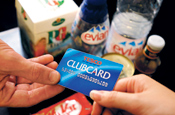The size of the vote against management was, in itself, surprising. About 10% of shareholders voted for the resolution, while 10% abstained. 'We see abstainers as part of the dissenting voice, because they are likely to express their concerns directly to the company,' says Sarah Wilson, chief executive of proxy voting agency Manifest. 'A vote of 20% against management is significant.' Indeed, it was only marginally lower than the 22% of shareholders who abstained or opposed Sir Stuart Rose's re-election to the board of Marks & Spencer.
Shareholder resolutions in the UK are rare; across 2000 or so AGMs each year, only four or five occur. Most, says Wilson, are designed to remove an underperforming chairman or chief executive. When NGOs and campaigners table a resolution, they tend to ask the board to produce a report on some aspect of the company's conduct. 'But Hugh Fearnley--Whittingstall tabled a "special resolution" effectively asking Tesco to change its strategy,' she adds.
The support he won was doubly significant in that most shareholders in the UK prefer to exert influence on companies behind closed doors - largely because a more public display of concern could undermine confidence in the business and its reputation and, therefore, affect its share price.
'The Tesco vote shows that share-holders are concerned about how management is responding to social and environmental issues,' says Penny Shepherd, chief executive of the UK Social Investment Forum.
She adds that the vote reflects a trend toward growing shareholder interest in these issues. 'The number of analysts with specific responsibility for looking at the risks and opportunities associated with this is rising, because big institutional shareholders understand that such issues are material to long-term financial success.'
Protest votes against big corporations, are nothing new, of course. In the mid-90s Shell came under fire for its exploration activity in the Niger Delta and its disposal of the Brent Spar oil platform, while, more recently, shareholder resolutions over BP's environmental performance were tabled at three out of four consecutive AGMs. In the US, brands such as Coca-Cola, Wal-Mart, McDonald's and Gap have been hauled over the coals by shareholders on issues ranging from racism and child labour to advertising in schools.
Steve Waygood, head of engagement in the SRI team at Morley Fund Management, believes there will be a rise in the number of UK shareholder resolutions tabled by campaigners.
'北京赛车pk10ers are as aware of the link between brand, reputation and share price as investors are, and will increasingly target the asset of the brand as a mechanism for raising awareness of an issue at board level,' says Waygood. 'Sometimes the company itself will be the issue, or campaigners might use the company as a tool for raising awareness for their own particular issue.'
As part of a more proactive corporate responsibility approach, Wilson suggests that companies such as Tesco could post blogs on their websites to engage in dialogue with consumers about the issues that concern them. Corporate responsibility is not black and white, though: Tesco, for example, needs to balance the welfare of its chickens with people's need for affordable food at a time of rising prices. Nonetheless, involving consumers in that debate might help to dilute the criticism the firm attracts.
Simon Bailey, managing director of The Brand Union, agrees. 'A brand such as Tesco could win considerable reputational advantage by being seen to move the debate forward. Tesco chief executive Sir Terry Leahy talks about Tesco's single-minded focus on the consumer, but the boundaries between different stakeholder groups are blurring, and the consumer is also a shareholder, a citizen and, possibly, a campaigner, too.'
As a result of this, those in charge of brands' reputations need to ensure that what they are selling lives up to the brand promise. BBC documentary series Panorama recently made a mockery of Primark's membership of the Ethical Trading Initiative by exposing its use of child labour - through its supply chain - to make its garments.
Greater shareholder interest in brands, even if it is manifested in protest votes, is a good thing. Brands are proving an effective weapon in holding even the biggest global corporations to account. Increasingly, it seems, they will stand not just for product quality and a desirable image, but signify a sustainable business too.


